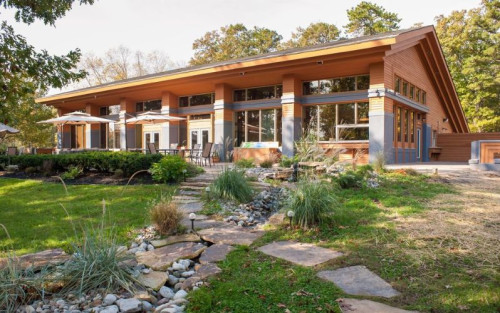
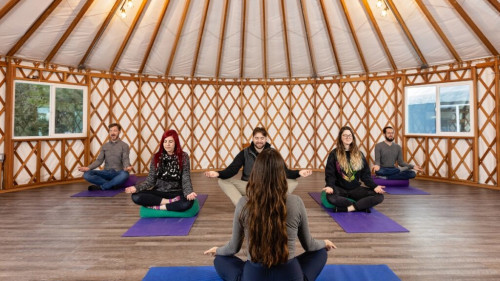
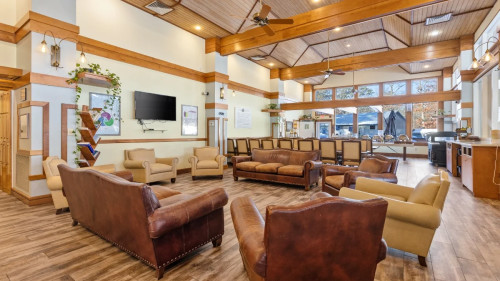
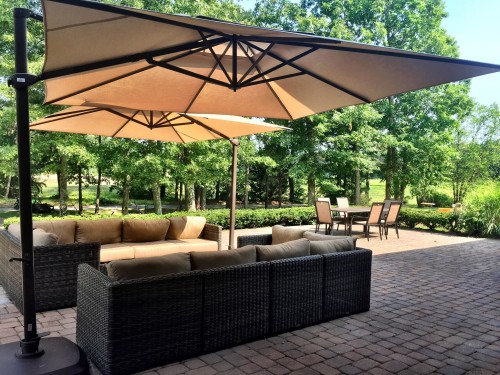
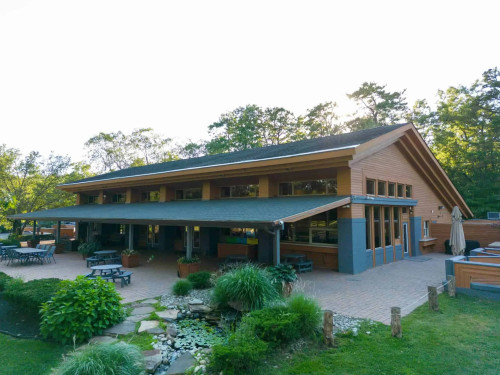




Enlightened Recovery
This provider's information has been quality-checked by Recovery.com's Research Team for accuracy and completeness, including center verification through appropriate third-party organizations.
Treatment Focus
You can admit to this center with a primary substance use disorder or a primary mental health condition. You'll receive support each step of the way and individualized care catered to your unique situation and diagnosis.
Primary Level of Care
Offering intensive care with 24/7 monitoring, residential treatment is typically 30 days and can cover multiple levels of care. Length can range from 14 to 90 days typically.
Treatment Focus
You can admit to this center with a primary substance use disorder or a primary mental health condition. You'll receive support each step of the way and individualized care catered to your unique situation and diagnosis.
Primary Level of Care
Offering intensive care with 24/7 monitoring, residential treatment is typically 30 days and can cover multiple levels of care. Length can range from 14 to 90 days typically.
Provider's Policy
We work with most insurance providers in the U.S. to provide the best possible coverage and minimize your out-of-pocket expenses.
Enlightened Recovery
Enlightened Recovery
About Enlightened Recovery
Enlightened Recovery offers a full continuum of care, specializing in a holistic approach to addiction treatment while still including 12-Step programming. They provide medically supported detox, residential care, and outpatient care for a diverse range of clients. The recovery process begins at Enlighten’s state-of-the-art medical detox facility, situated on New Jersey's beautiful Atlantic coast and just 15 minutes away from their residential center. Enlightened Recovery focuses on treating the mind, body, and spirit. Their treatment approach has strong medical and holistic components, an effective combination to create comprehensive treatment.
Build a Foundation for Whole-Person Recovery
Enlightened Recovery uses a treatment process that’s tailored to each client from the moment they arrive to their treatment graduation. Their 30-day residential program addresses 8 aspects of wellness: emotional, environmental, financial, occupational, intellectual, physical, social, and spiritual. During residential stays, clients participate in talk therapy, group therapy, brainspotting, and other forms of holistic and 12-Step therapies. To address the nuanced needs of men and women, Enlightened Recovery also offers gender-specific group therapy, providing a safe and understanding space to open up. Co-ed groups bring men and women together and show the many ways in which their struggles are the same, especially during treatment and throughout recovery. Enlightened’s horticulture program provides clients with additional opportunities for growth in an emotional, spiritual, and physical capacity. From nutrition to family therapy to tending the organic farm, each strategy gives clients the tools to fully live again.
Cultivate Wellness Through Nature and Creativity
Enlightened Recovery has a stunning 460-acre farm, complete with a basketball court, ropes course, music center, and on-site music and art therapy yurts. Each day is filled with nature and outdoor activities, where clients can learn how to farm and garden, which teaches them sustainability and self-sufficiency and can be used later in finding work. Enlightened Cafe is their on-site eatery, where clients can enjoy nutritious meals and juices all throughout their stay. The Enlightened Cafe also hosts 12-Step meetings, yoga, meditation, music therapy, and empowerment groups, as it’s one of the coziest and most inviting rooms at Enlightened Recovery.
Recover in Unmatched Comfort
Inpatient stays at Enlightened Recovery are comfortable and luxurious, with upscale, homey accommodations. With both city skyline and water views, plus the care put into each room, Enlightened Recovery is a peaceful environment to start recovery. Inside, clients can relax in air-conditioned rooms, work out in their fitness room, or just spend time reflecting in a quiet environment. Outside, an outdoor lounge awaits, along with a gorgeous garden and various low-key walking trails. Clients benefit from daily housekeeping and relaxing with streaming services like Netflix.
Recent winner of Conquer Addiction Excellence in Treatment Award

Highlights from the Center
Highlights
These highlights are provided by and paid for by the center.
Customized Treatment Plans
Holistic Approach
Medically Assisted Detox
Private Rooms Available
Center Overview
Treatment Focus
You can admit to this center with a primary substance use disorder or a primary mental health condition. You'll receive support each step of the way and individualized care catered to your unique situation and diagnosis.
Joint Commission Accredited
The Joint Commission accreditation is a voluntary, objective process that evaluates and accredits healthcare organizations (like treatment centers) based on performance standards designed to improve quality and safety for patients. To be accredited means the treatment center has been found to meet the Commission's standards for quality and safety in patient care.
Recently helped 11 people via Recovery.com

Recently helped 11 people via Recovery.com
Insurance Accepted
Cash Pay Rates
Estimated Cash Pay Rate
Center pricing can vary based on program and length of stay. Contact the center for more information. Recovery.com strives for price transparency so you can make an informed decision.
Other Enlightened Recovery Centers To Consider
Recovery.com Verified Listing
Recovery.com verified that the name, location, contact information and license to operate for this treatment provider are valid and up-to-date.

Joint Commission Accredited

Licensed
Recovery.com is an independent, third-party mental health resource. Verification does not imply endorsement and does not guarantee the quality of treatment services.
Meet your care team

Jennifer Hansen
Chief Executive Officer

Robert Snyder
Chief Operating Officer
Master’s degree, LCADC, CCS

Dr. Andrew Youssof
Medical Director
M.D.

Melissa Angelo
Chief Administrative Officer
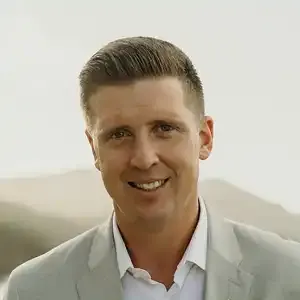
Matthew Stilley
Chief Clinical Officer
MSW
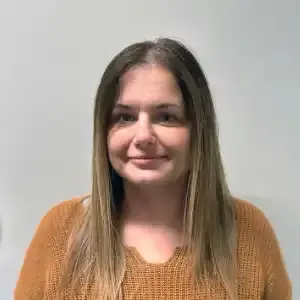
Jennifer Shipman
Program Director
Licensed Social Worker, Licensed Clinical Alcohol and Drug Counselor




Treatment
Specializations
Veterans
Patients who completed active military duty receive specialized treatment focused on trauma, grief, loss, and finding a new work-life balance.
Residential
In a residential rehab program, patients live onsite, with access to daily treatment and 24-hour care. An average stay is 30-90 days.
Depression
Symptoms of depression may include fatigue, a sense of numbness, and loss of interest in activities. This condition can range from mild to severe.
Co-Occurring Disorders
A person with multiple mental health diagnoses, such as addiction and depression, has co-occurring disorders also called dual diagnosis.
Trauma
Some traumatic events are so disturbing that they cause long-term mental health problems. Those ongoing issues can also be referred to as "trauma."
Detox
Detox fully and safely removes toxic substances from the body, allowing the next steps in treatment to begin with a clean slate.
Alcohol
Using alcohol as a coping mechanism, or drinking excessively throughout the week, signals an alcohol use disorder.
Who We Treat
Veterans
Patients who completed active military duty receive specialized treatment focused on trauma, grief, loss, and finding a new work-life balance.
Men and Women
Men and women attend treatment for addiction in a co-ed setting, going to therapy groups together to share experiences, struggles, and successes.
Young Adults
Emerging adults ages 18-25 receive treatment catered to the unique challenges of early adulthood, like college, risky behaviors, and vocational struggles.
LGBTQ+
Addiction and mental illnesses in the LGBTQ+ community must be treated with an affirming, safe, and relevant approach, which many centers provide.
Executives
Executive treatment programs typically directly support the needs of people who manage businesses and may provide flexible schedules and office space to allow work during treatment.
Midlife Adults
For adults ages 40+, treatment shifts to focus on the unique challenges, blocks, and risk factors of their age group, and unites peers in a similar community.
Treatment Services
Residential
In a residential rehab program, patients live onsite, with access to daily treatment and 24-hour care. An average stay is 30-90 days.
Outpatient
During outpatient rehab, patients attend a structured treatment program while continuing to live at home.
Day Treatment
In a PHP, patients live at home but follow an intensive schedule of treatment. Most programs require you to be on-site for about 40 hours per week.
Intensive Family Program
Some rehabs offer intensive programs for loved ones. Group and individual therapy sessions help everyone heal, and improve family dynamics.
Intensive Outpatient Program
In an IOP, patients live at home or a sober living, but attend treatment typically 9-15 hours a week. Most programs include talk therapy, support groups, and other methods.
Detox
Detox fully and safely removes toxic substances from the body, allowing the next steps in treatment to begin with a clean slate.
Approaches
Twelve Step
Incorporating spirituality, community, and responsibility, 12-Step philosophies prioritize the guidance of a Higher Power and a continuation of 12-Step practices.
Holistic
A non-medicinal, wellness-focused approach that aims to align the mind, body, and spirit for deep and lasting healing.
Evidence-Based
A combination of scientifically rooted therapies and treatments make up evidence-based care, defined by their measured and proven results.
Individual Treatment
Individual care meets the needs of each patient, using personalized treatment to provide them the most relevant care and greatest chance of success.
Therapies
Stress Management
Patients learn specific stress management techniques, like breathing exercises and how to safely anticipate triggers.
Spiritual Care
Tending to spiritual health helps treatment become more effective, allowing patients to better cope with their emotions and rebuild their spiritual wellbeing.
1-on-1 Counseling
Patient and therapist meet 1-on-1 to work through difficult emotions and behavioral challenges in a personal, private setting.
Family Therapy
Family therapy addresses group dynamics within a family system, with a focus on improving communication and interrupting unhealthy relationship patterns.
Adventure Therapy
This experiential approach uses the physical and emotional challenges of outdoor activities as tools for personal growth.
Conditions We Treat
Post Traumatic Stress Disorder
PTSD is a long-term mental health issue caused by a disturbing event or events. Symptoms include anxiety, dissociation, flashbacks, and intrusive thoughts.
Anxiety
Anxiety is a common mental health condition that can include excessive worry, panic attacks, physical tension, and increased blood pressure.
Depression
Symptoms of depression may include fatigue, a sense of numbness, and loss of interest in activities. This condition can range from mild to severe.
Personality Disorders
Personality disorders destabilize the way a person thinks, feels, and behaves. If untreated, they can undermine relationships and lead to severe distress.
Bipolar
This mental health condition is characterized by extreme mood swings between depression, mania, and remission.
Trauma
Some traumatic events are so disturbing that they cause long-term mental health problems. Those ongoing issues can also be referred to as "trauma."
Substances We Treat
Cocaine
Cocaine is a stimulant with euphoric effects. Agitation, muscle ticks, psychosis, and heart issues are common symptoms of cocaine abuse.
Prescription Drugs
It's possible to abuse any drug, even prescribed ones. If you crave a medication, or regularly take it more than directed, you may have an addiction.
Benzodiazepines
Benzodiazepines are prescribed to treat anxiety and sleep issues. They are highly habit forming, and their abuse can cause mood changes and poor judgement.
Ecstasy
Ecstasy is a stimulant that causes intense euphoria and heightened awareness. Abuse of this drug can trigger depression, insomnia, and memory problems.
Co-Occurring Disorders
A person with multiple mental health diagnoses, such as addiction and depression, has co-occurring disorders also called dual diagnosis.
Psychedelics
Hallucinogenic drugs—like LSD—cause euphoria and increased sensory experiences. When abused, they can lead to depression and psychosis.
Drug Addiction
Drug addiction is the excessive and repetitive use of substances, despite harmful consequences to a person's life, health, and relationships.
Chronic Relapse
Consistent relapse occurs repeatedly, after partial recovery from addiction. This condition requires long-term treatment.
Heroin
Heroin is a highly addictive and illegal opioid. It can cause insomnia, collapsed veins, heart issues, and additional mental health issues.
Languages
Aftercare
Experience
Personal Amenities
Amenities
Special Considerations
Young Adults Program
Programs for young adults bring teens 18+ together to discuss age-specific challenges, vocational and educational progress, and successes in treatment.
Healthy Meals are provided
Great food meets great treatment, with providers serving healthy meals to restore nutrition, wellbeing, and health.
Gender-specific groups
Patients in gender-specific groups gain the opportunity to discuss challenges unique to their gender in a comfortable, safe setting conducive to healing.
Activities
Yoga
Yoga is both a physical and spiritual practice. It includes a flow of movement, breathing techniques, and meditation.
Off-Site Activities
Off-Site Amenities

Recently helped 11 people via Recovery.com
Learn More About the Center
How to Convince Someone To Go To Rehab
Learn how to approach this delicate yet crucial conversation with compassion and without judgment.
Detox for Executives
Read about the privacy, discretion, and personalized care that fits the high standards of professional leaders.
Couples Detox & Recovery
Learn about the benefits, challenges, and other considerations of pursuing treatment together.
Building a Recovery Community
Harness the collective strength of a support system for recovery.
What people are saying
Accommodations
Food & Nutrition
Treatment
Value
Pros
- Beautiful Location (6)
- Luxurious Accommodations (7)
- Personalized (7)
- Friendly & Competent Staff (7)
Cons
- Poor Cell Service (3)
See More
Kate C
James P.
Erik F
Scott D
Kate L.
We love hearing about your treatment experience
Help individuals and families seeking treatment by sharing your first-hand experience with this treatment provider. Review Guidelines.





